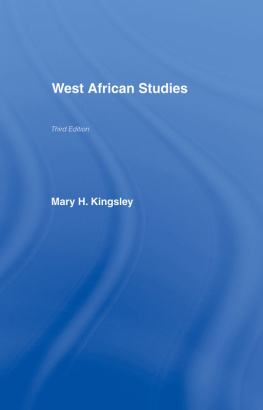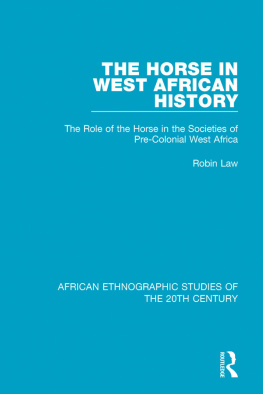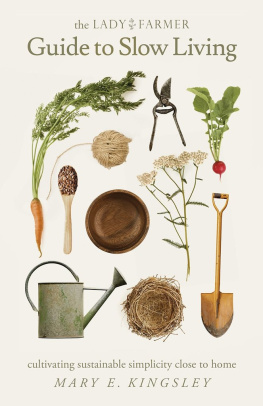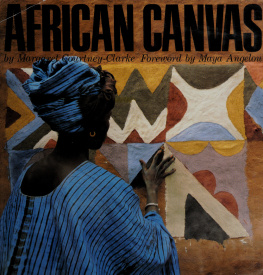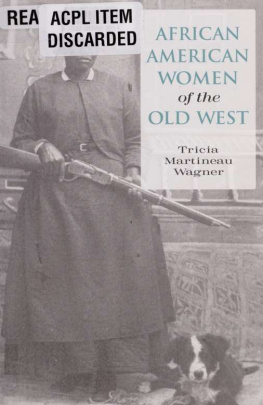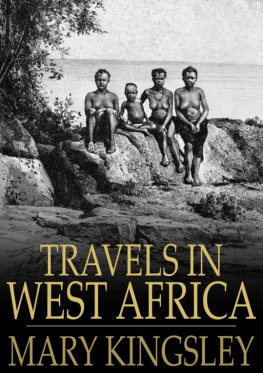First published by Macmillan & Co. Ltd in 1899
This edition published by Taylor & Francis
2 Park Square, Milton Park, Abingdon,Oxon, OX14 4RN
711 Third Avenue, New York, NY 10017
Routledge is an imprint of the Taylor & Francis Group, an informa business
First edition | 1899 |
Second edition | 1901 |
Third edition | 1964 |
Transferred to Digital Printing 2006
ISBN: 9780714618234 (hbk)
ISBN: 9781136255106 (ebk)
Publishers Note
The publisher has gone to great lengths to ensure
the quality of this reprint but points out that some
imperfections in the original
may be apparent
To my brother Mr. C. G. Kingsley
and to my friend who is dead
this book is dedicated
Preface to the Reader
Y OU may remember that after my return from a second sojourn in West Africa, when I had been to work at fetish and fresh-water fishes, I published a word-swamp of a book about the size of Nories Navigation. Mr. George Macmillan lured me into so doing by stating that if I gave my own version of the affair I should remove misconceptions; and if I did not it was useless to object to such things as paragraphs in American papers to the effect that Miss Kingsley, having crossed the continent of Africa, ascended the Niger to Victoria, and then climbed the Peak of Cameroon; she is shortly to return to England, when she will deliver a series of lectures on French art, which she has had great opportunities of studying. Well, thanks to Mr. Macmillans kindness, I did publish a sort of interim report, called Travels in West Africa. It did not work out in the way he prophesied. It has led to my being referred to as an intrepid explorer, a thing there is not the making of in me, who am ever the prey of frights, worries and alarms; and its main effect, as far as I am personally concerned, has been to plunge me further still in debt for kindness from my fellow creatures, who, though capable of doing all I have done and more capable of writing about it in really good English, have tolerated that book and frequently me also, with half-a-dozen colds in my head and a dingy temper. Chief among all these creditors of mine I must name Mrs. J. R. Green, Mrs. George Macmillan and Miss Lucy Toulmin Smith; but dont imagine that they or any other of my creditors approve of any single solitary opinion I express, or the way in which I express it. It is merely that I have the power of bringing out in my fellow-creatures, white or black, their virtues, in a way honourable to them and fortunate for me.
I must here also acknowledge the great debt of gratitude I owe to Mr. John Holt, of Liverpool. A part of my work lies in the affairs of the so-called Bubies of Fernando Po, and no one knows so much about Fernando Po as Mr. Holt. He has also been of the greatest help to me in other ethnological questions, and has permitted me to go through his collections of African things most generously. It is, however, idle for me to attempt to chronicle my debt to Mr. Holt, for in every part of my work I owe him much. I do not wish you to think he is responsible for any of it, but his counsels have ever been on the side of moderation and generosity in adverse criticism. I honestly confess I believe I am by nature the very mildest of critics; but Mr. Holt and others think otherwise; and so, although I have not altered my opinions, I have refrained from publishing several developments of them, in deference to superior knowledge.
I am also under a debt of gratitude to Professor Tylor. He also is not involved in my opinions, but he kindly permits me to tell him things that I can only tell Tylor; and now and again, as you will see in the Fetish question, he comes down on me with a refreshing firmness; in fact, I feel that any attempt at fantastic explanations of West African culture will not receive any encouragement from him; and it is a great comfort to a mere drudge like myself to know there is some one who cares for facts, without theories draping them.
I will merely add that to all my own West Coast friends I remain indebted; and that if you ever come across any one who says I owe them much, you may take it as a rule that I do, though in all my written stuff I have most carefully ticketed its source.
I now turn to the explanation and apology for this book, briefly. Apology for its literary style I do not make. I am not a literary man, only a student of West Africa. I am not proud of my imperfections in English. I would write better if I could, but I cannot. I find when I try to write like other people that I do not say what seems to me true, and thereby lose all right to say anything; and I am more convinced, the more I know of West Africamy education is continuous and unbroken by holidaysthat it is a difficult thing to write about, particularly when you are a student hampered on all sides by masses of inchoate material, unaided by a set of great authors to whose opinions you can refer, and addressing a public that is not interested in the things that interest you so keenly and that you regard as so deeply important.
In my previous book I most carefully confined myself to facts and arranged those facts on as thin a line of connecting opinion as possible. I was anxious to see what manner of opinion they would give rise to in the minds of the educated experts up here; not from a mere feminine curiosity, but from a distrust in my own ability to construct theories. On the whole this method has worked well. Ethnologists of different theories have been enabled to use such facts as they saw fit; but one of the greatest of ethnologists has grumbled at me, not for not giving a theory, but for omitting to show the inter-relationship of certain groups of facts, an interrelationship his acuteness enabled him to know existed. Therefore I here give the key to a good deal of this inter-relationship by dividing the different classes of Fetishism into four schools. In order to do this I have now to place before you a good deal of material that was either crowded out of the other work or considered by me to require further investigation and comparison. As for the new statements I make, I have been enabled to give them this from the constant information and answers to questions I receive from West Africa. For the rest of the Fetish I remain a mere photographic plate.
Regarding the other sections of this book, they are to me all subsidiary in importance to the Fetish, but they belong to it. They refer to its environment, without a knowledge of which you cannot know the thing. What Mr. Macmillan has ticketed as IntroductoryI could not find a name for it at allhas a certain bearing on West African affairs, as showing the life on a West Coast boat. I may remark it is a section crowded out of my previous book; so, though you may not be glad to see it here, you must be glad it was not there.
The fishing chapter was also cast out of Travels in West Africa. Critics whom I respect said it was wrong of me not to have explained how I came by my fishes. This made me fear that they thought I had stolen them, so I published the article promptly in the National Review



